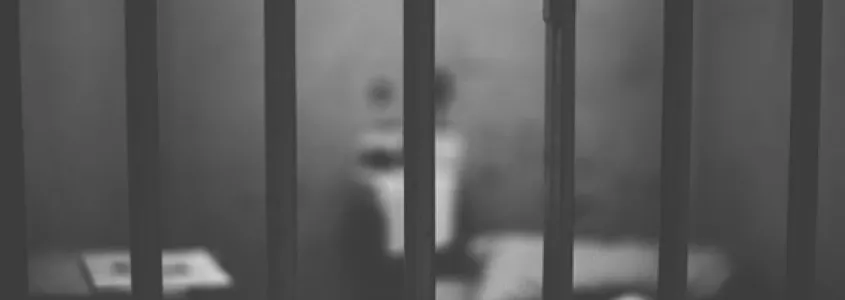
Table of contents
The third degree of imprisonment, also known as open regime or semi-liberty regime, is a modality of serving a custodial sentence that is characterised by the flexibility of the conditions of imprisonment. Under this regime, the inmate may leave the prison to work, study, carry out voluntary work or other activities of a socio-labour nature, provided that he or she meets certain conditions and requirements established by the prison authorities.
The main objective of the third degree is the social reintegration of the inmate, that is, his or her preparation for life in freedom and his or her integration into society. To this end, the aim is to encourage the development of skills, abilities and values that will enable the inmate to be a useful and responsible person in society. In this way, the aim is to prevent recidivism and contribute to public safety.
Access to the third degree in prison is conditioned by several factors, including the length of the sentence, the type of crime committed, the degree of dangerousness of the inmate, his or her conduct in prison and his or her criminological profile. In general, to qualify for the third degree, the inmate must have served a significant part of his or her sentence (at least one third in most cases), have shown exemplary behaviour in prison, have not committed serious offences, and have a viable and realistic life plan that justifies his or her release from prison.
How does the third degree work?
Once the third degree is granted, the inmate is transferred to an open prison, where he or she will enjoy greater freedom and autonomy. In this centre, the inmate will have a flexible timetable and will be able to carry out various activities outside the centre, as long as the conditions imposed by the prison authorities are respected. The inmate must comply with the obligations assigned to him or her, such as seeking employment or carrying out training activities, and control measures may be imposed, such as the use of tracking devices, regular reporting to the police station, or supervision by a guardian.
During the time spent in the third degree, the inmate must respect the conditions imposed by the prison authorities and comply with the obligations assigned to him/her. He or she must attend scheduled appointments, report to the prison authorities at the established times and respect the limits of mobility and timetables that have been imposed on him or her.
It is important to note that the third degree does not imply the extinction of the sentence, but rather that the inmate continues to serve his or her sentence in open regime. Moreover, in the event of non-compliance with the conditions imposed, the third degree may be revoked and the inmate may return to the closed regime.
How do you get the third degree?
To qualify for the third degree, the inmate must have served a significant part of his or her sentence (at least one third in most cases) and have shown exemplary behaviour in prison. In addition, the inmate must have a viable and realistic life plan that justifies his or her release from prison and social reintegration. This project may include seeking employment, undertaking training activities or participating in rehabilitation programmes.
Once the inmate's file has been evaluated and the above-mentioned factors have been assessed, a decision is taken on whether or not to grant the third degree. If so, the inmate is transferred to an open prison, where he or she will enjoy greater freedom and autonomy.
During the time spent in the third degree, the inmate must comply with the obligations imposed by the prison authorities and respect the conditions of mobility and timetables. In addition, control measures may be imposed, such as the use of tracking devices, regular reporting to the police station, or supervision by a guardian.
It is important to note that access to the third degree is not automatic or a right of the inmate, but is a decision that rests with the prison authorities and is conditional on a series of requirements and factors that must be met. Moreover, the third degree does not imply the extinction of the sentence, but the inmate continues to serve his or her sentence in open regime.
What are the prison grades?
In Spain, there are three prison grades: first grade, second grade and third grade. Each of them is characterised by the living regime and the conditions established for the inmates, according to their dangerousness, the type of crime committed and their evolution in prison.
- First degree: also known as the closed regime, this is the strictest regime and applies to the most dangerous and violent inmates. Prisoners spend most of the day in their cells and are only entitled to two hours a day in the yard. They are also subject to increased control and surveillance by prison officers.
- Second degree: also known as the ordinary regime, it applies to inmates who have shown a favourable evolution in prison and are not considered to present a high level of danger. In this regime, inmates are entitled to work or study outside the cell and to more yard hours. They are also allowed more contact with their families and with the outside world.
- Third degree: also known as open regime, it applies to prisoners who have served a significant part of their sentence and have shown a positive evolution in their behaviour in prison. In this regime, inmates have greater freedoms and autonomy.
Who grants the third grade of prison sentence?
The granting of the third grade of prison sentence is the responsibility of the prison authorities, who are in charge of assessing each case individually and deciding whether or not to grant the third grade depending on the dangerousness of the inmate, the type of crime committed, the evolution in prison and the inmate's life plan.
Specifically, the competence to grant the third grade of prison sentence lies with the Treatment Board of each prison, which is the body responsible for evaluating the file of each inmate and deciding whether or not to grant the third grade. The Treatment Board is made up of various professionals, such as the prison director, the head of social services and the technical treatment team, who are responsible for analysing the inmate's criminological profile and his or her personal and family situation in order to reach a decision.
Once the Treatment Board has evaluated the inmate's file and assessed the aforementioned factors, it submits a proposal to the corresponding Prison Supervision Judge, who is responsible for approving or rejecting the Treatment Board's proposal.

"Anywhere in Spain"
With our online appointment system you will have immediate advice without the need for face-to-face visits or travel.
One of our lawyers specialized in your area of interest will contact you to formalize an appointment and make your consultation by video call.

Add new comment